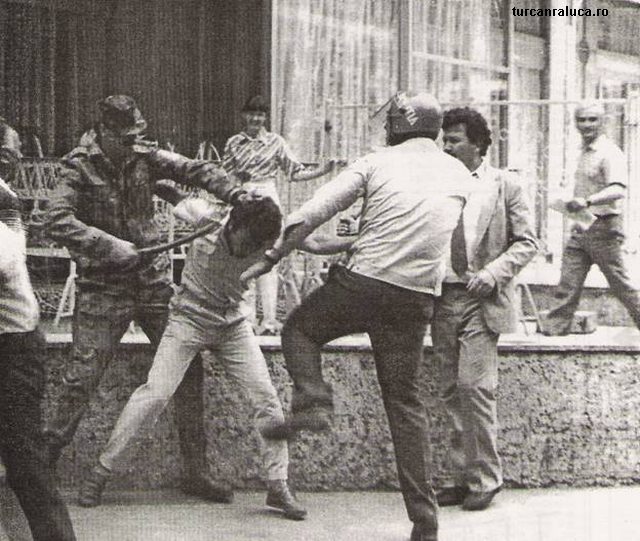ECHR ruling in Romania’s miners’ raid of June 1990
After more than 25 years and thousands of kilometers away from Romania, a verdict has been given in the case involving three victims of the miners raid of June 13th– 15th 1990, who sued the Romanian state.

Bogdan Matei, 18.09.2014, 13:47
Uninvestigated, un-clarified and unpunished in due time, crimes of the past are back to haunt us. The European Court of Human Rights has criticized the Bucharest authorities for the way in which they investigated the miners’ raid of June 1990 and forced them to reopen investigations and pay 60 thousand Euros worth of damages to the three plaintiffs who did not find justice in their own country. The three are Anca Mocanu, whose husband was shot dead during the raid, Marin Stoica, savagely beaten, and Teodor Maries, arrested on no grounds and molested during the same raid.
According to our correspondent in Strasbourg, the European Court has stated that Romanian authorities did not take the necessary measures to identify and punish the guilty. In Bucharest, the miner’s raid of 1990 was investigated for 8 years but the case was closed with a decision saying that nobody was to be prosecuted.
In Strasbourg, though, judges concluded that several articles in the European Convention on Human Rights regarding torture, inhuman and degrading treatment and the right to life were violated. In Romania, the European court’s ruling reopens debates and old wounds. Five months after the fall of Ceausescu’s regime, his former minister in the 1970s, Ion Iliescu, seen as a leader of the revolution, won the first free presidential elections with 85% of the votes. His party, a heterogeneous combination of authentic revolutionaries and second-hand communists, also took two thirds of Parliament’s seats.
Bucharest’s University Square, taken over by students in April and proclaimed “area free of neo-communism” had already been emptied, most of the protesters accepting the verdict given by voters. On the night of June 13th, the few dozen protesters left in the square, protesting by hunger strike, were cleared out by the police, which used completely disproportionate force, evoking the repression of the anti-communist revolution. Nobody knows, even today, if those who reacted the next day, getting involved in street fighting with the police and taking over the headquarters of the Interior Ministry and of the public Television, had actually anything to do with University Square.
Iliescu and his people promptly termed them as ‘legionnaires’ and, although the army had already reestablished order, they called on the population to save democracy from the danger it faced. The miners in Valea Jiului, in central Romania, responded to that call. Miners took control of Bucharest for only two days, June 14th and 15th, enough though to leave behind 700 people wounded, over one thousand abusively taken into police custody and at least 6 dead. The picture of the invasion: a devastated Square, as well as devastated headquarters of opposition parties and independent papers.
In the early 2000s, back as president of the country with a clear pro-western agenda, Iliescu took Romania towards NATO and the European Union membership. However, in people’s minds, he will always be associated with the miners’ raid that took the country to the brink of civil war.






























